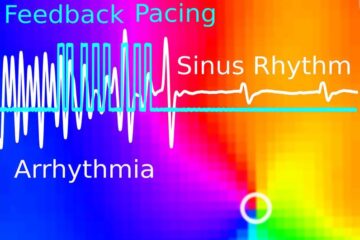Sick Kids researchers confirm that cancer stem cells initiate and grow brain tumours

Opens the door for new therapeutic targets
Researchers at The Hospital for Sick Children (Sick Kids) and the University of Toronto (U of T) have confirmed that childhood and adult brain tumours originate from cancer stem cells and that these stem cells fuel and maintain tumour growth. This discovery has led to development of a mouse model for human brain tumours and opens the door for new therapeutic targets for the treatment of brain tumours. This research is reported in the November 18, 2004 issue of the scientific journal Nature.
“Now that we have confirmed that a small number of cancer stem cells initiates and maintains human brain tumour growth in a mouse model, we can potentially use the mouse model with each patient’s tumour cells to see if therapies are working to conquer that patient’s tumour,” said Dr. Peter Dirks, the study’s principal investigator, a scientist and neurosurgeon at Sick Kids, and an assistant professor of Neurosurgery at U of T. “A functional analysis of the brain tumour stem cell may also give new insight into patient prognosis that may then warrant individual tailoring of therapy.” Dr. Dirks’ laboratory was able to regrow an exact replica of patients’ brain tumours in a mouse from the isolated cancer stem cells, or brain tumour initiating cells. They were then able to study the growth of the human brain tumour in the mouse model using the advanced imaging technology in the Mouse Imaging Centre (MiCE) at Sick Kids.
Brain tumours are the leading cause of cancer mortality in children and remain difficult to cure despite advances in surgery and drug treatments. In adults, most brain tumours are also among the harshest cancers with formidable resistance to most therapies. “Next, we are going to study the gene expression of the brain tumour stem cells. Once we have identified what genes are expressed in those cells, we will then be able to target these genes using new drugs or genetic-type therapies,” said Dr. Sheila Singh, the paper’s lead author and Sick Kids neurosurgery resident and U of T graduate student who is enrolled in Sick Kids’ Clinician-Scientist Training Program. Dr. Singh was supported by a fellowship from The Terry Fox Foundation, as well as by funding from the Neurosurgical Research and Education Foundation and the American Brain Tumor Association.
“We have shown that it is really worthwhile to invest further in studying brain tumour stem cells, as we will be able to determine if current therapies are failing because they are not stopping the cancer stem cells,” added Dr. Dirks. “It also looks like cancer stem cells play a role in other solid tumours such as breast cancer, so we can all work together to develop new treatments for these cancers.”
Other members of the research team included Dr. Cynthia Hawkins, Dr. Ian Clarke, Dr. Takuichiro Hide and Dr. Mark Henkelman, all from Sick Kids, Dr. Jeremy Squire and Jane Bayani from the Ontario Cancer Institute, and Dr. Michael Cusimano from St. Michael’s Hospital.
Media Contact
All latest news from the category: Life Sciences and Chemistry
Articles and reports from the Life Sciences and chemistry area deal with applied and basic research into modern biology, chemistry and human medicine.
Valuable information can be found on a range of life sciences fields including bacteriology, biochemistry, bionics, bioinformatics, biophysics, biotechnology, genetics, geobotany, human biology, marine biology, microbiology, molecular biology, cellular biology, zoology, bioinorganic chemistry, microchemistry and environmental chemistry.
Newest articles

Wildfire danger to increase due to climate change
WSL Institute for Snow and Avalanche Research (SLF) researchers expect an elevated wildfire danger in the Alpine Foreland from 2040 onwards due to changing meteorological conditions. The danger currently remains…

Advanced Brain Science Without Coding Expertise
Researchers at Helmholtz Munich and the LMU University Hospital Munich introduce DELiVR, offering a new AI-based approach to the complex task of brain cell mapping. The deep learning tool democratizes…

Gentle defibrillation for the heart
Using light pulses as a model for electrical defibrillation, Göttingen scientists developed a method to assess and modulate the heart function. The research team from the Max Planck Institute for…





















